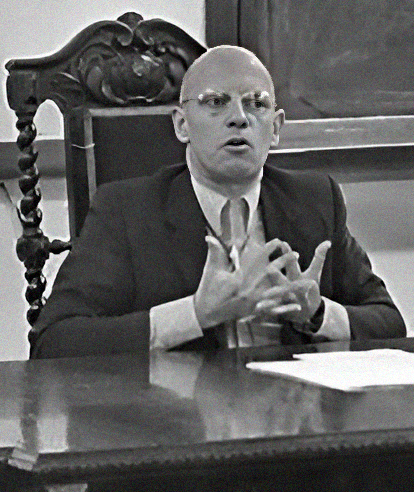Via a Boston Review piece about a new biography of Simone de Beauvoir, which notes, inter alia the hypocrisy in The Second Sex behind the various abusiveness she shared and spread along with Jean-Paul Sartre, I saw a link to a Wikipedia piece from a description that, in the 1970s, the two of them, along with many other leading lights of French philosophy, as in Jacques Derrida, Michel Foucault, Roland Barthes, Jean-François Lyotard, Gilles Deleuze and others, including intellectuals outside of the world of philosophy, had signed a petition asking the French government to ...
Wait for it, wait for it ....
Abolish all aged-based laws of sexual consent.
No, really. Here's the petition, in Le Monde, and in English, with a link to a French blog post about it, and a similar one, two years later, in Liberation. Those, along with Figaro and Le Matin, would be two of France's top four daily newspapers by most accounts.
And, per some of the links off the Wikipedia page?
Atlantic describes a 2011 statutory rape of an 11-year-old. Except that it's not. It's technically not rape in France unless force is used, even on an 11-year-old. In other words, France has no statutory rape law. French law did allow original lesser sexual charges, but until a judge explicitly instated a rape charge (Continental jurisprudence allowing a judge to do that), that was it. But, France, as of the time of that case, and the 2018 story, still had no formal age of consent. (Atlantic had the actual petition links.)
The story notes that this all started with France's version of the summer of protest and summer of love in 1968. From there, France had, well, had NAMBLA type organizations form.
Not all Frenchmen at that time or now agreed. Many were horrified.
So, Sartre et al weren't even protesting statutory rape laws, since France doesn't even have THAT! They were protesting something lesser. Rather than decrying that the "something lesser" was all that was on the books.
And, it gets worse!
Also linked off Wiki is this interview with Foucault (at left) and others, about six months after the first petition in Le Monde.One of the speakers says the push for a an age of consent, after some people were outraged by the petition to see that France didn't have one, is all about American puritan prudery crossing the ocean.
No, really. Guy Hocquenghem, one of the signers:
When someone says that child pornography is the most terrible of present scandals, one cannot but be struck by the disproportion between this -child pornography, which is not even prostitution - and everything that is happening in the world today- what the black population has to put up with in the United States, for instance.
What is there to say but what the fuck?
Well, there's more about why this is a what the fuck.
Yes, it's true that children understand something about what sexual organs are, etc. But, for Foucault to try to equalize a child's sexuality to an adult's is ridiculous. Part of what I see playing out is a continuing interest in Freudianism at this time among both the philosophers and psychologists who signed the petition. And, a veiled hint that an age of consent would be a societal version of Freudian repression. And, of course, from that, Hocquenghem says that the idea of a "pervert" is nothing but a social construct.
What's also "interesting" is that both Foucault and Hocquenghem died from AIDS. Foucault is identified as the first French public figure to do so. Whether either took any sexual precautions after the first AIDS alarms, I don't know. But, they had the opportunity. After all, Luc Montagnier is French, and he was first talking about it as a retrovirus back in 1983, and most of the basic issues had been worked out by 1985 or 1986.. It's also "interesting" that Hocquenghem started a sexually abusive (because it might fall under statutory rape age!) relationship with a high school philosophy teacher when he was 15.
Speaking of that, and per the interview, I'm actually surprised that none of the signees made a direct appeal to Athenian pederasty.
I would like to think that Camus, were he still alive at the time, would not only not have signed such a petition but would have called it out. But, of course, I don't know that.
And, no, this isn't "old Europe" in general. The Atlantic lists information on a number of European states that have explicit age of consent laws and what those ages are.




